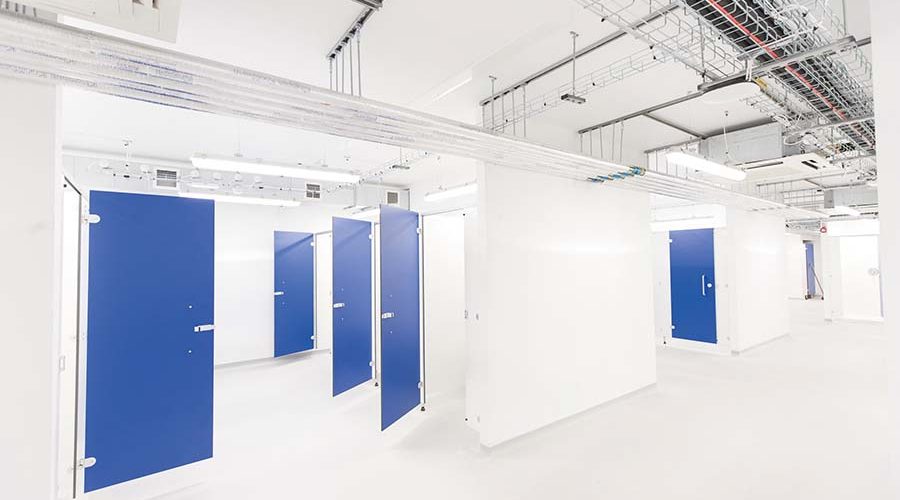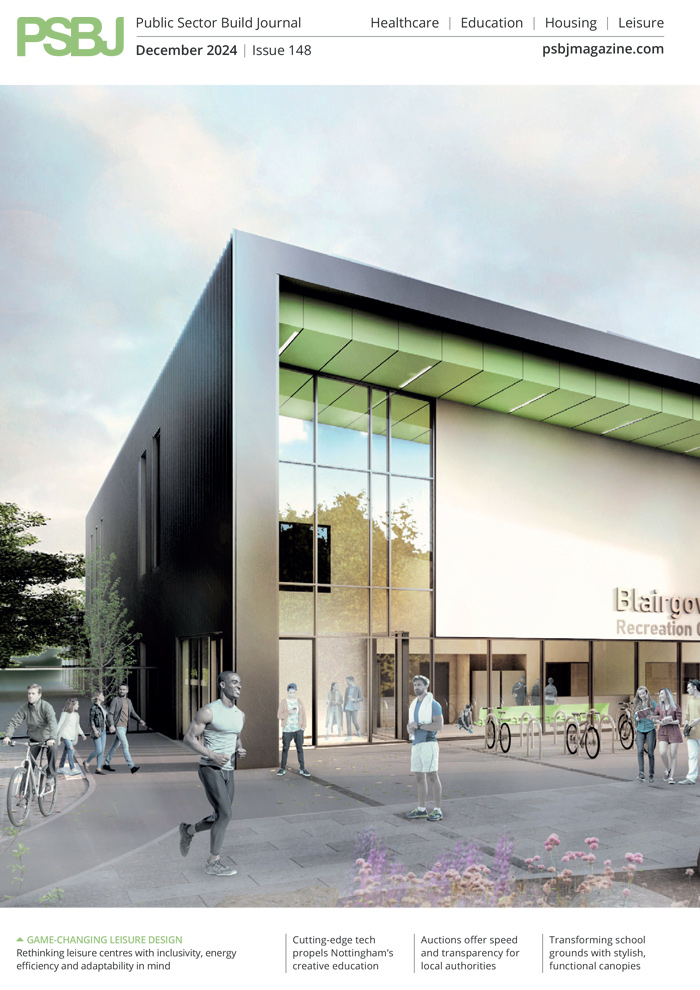In this article, David Harris, Managing Director of Premier Modular – one of the UK’s leading offsite specialists – looks at the renewed focus on offsite construction and how it is helping to address some of the biggest challenges in the healthcare sector.
Premier Modular
There is definitely a surge in interest in offsite construction in every sector but particularly in healthcare. The speed and quality benefits of taking a manufacturing approach to construction are clear and have been well-documented – but are now more relevant than ever before.
The pressure on health services and particularly on emergency care units has continued to rise year on year – and then the pandemic hit.
Complex, specialist and highly-serviced facilities
The buildings required to expand capacity in the NHS can be complex, specialist and highly-serviced facilities and needed on already extremely constrained hospital sites. There is also the critical issue of minimising disruption to the provision of existing hospital services during construction.
These requirements are increasingly being met using innovative offsite solutions – on severely restricted sites, in up to half the time of site-based building methods, with much less disruption to patient care, greater certainty of completion on budget and on programme, and to stringent quality standards.
With good design, highly-efficient processes and a robust and flexible building solution, offsite construction can deliver comfortable and welcoming environments for patients and staff, with complete long-term flexibility to meet changing local needs, in compliance with NHS best practice for building design – and on some of the UK’s most challenging building sites.
The implications of COVID-19 on the offsite sector
The COVID-19 pandemic has resulted in a renewed focus on offsite manufacturing. UK construction was already facing huge challenges around productivity which has a major impact on the affordability of delivering new public sector projects – from hospitals to schools and social housing.
The short-term impact of COVID-19 on UK construction was dramatic with many projects halted completely during the first lockdown, which resulted in delayed completions. Sites re-opened but many are having to operate at a reduced level to meet social distancing requirements.
In contrast, work continued on almost all Premier sites at every stage of the pandemic. This proves how offsite construction can mitigate the effects of the restrictions imposed by COVID-19 and demonstrates how the approach can radically reduce risk on time-sensitive and fast-track projects.
It is clearly easier to implement COVID-safe procedures in a controlled factory environment – as well as to maintain consistently higher build quality.
The increasing use of offsite in the healthcare sector
The Government has announced significant investment in healthcare – as well as in infrastructure and education – and now with a welcome presumption in favour of offsite.
Flexibility is key. Offsite manufacturers, such as Premier Modular, that can provide buildings manufactured and fitted-out entirely off site – or who have the expertise to marry offsite with in-situ construction methods to create hybrid solutions – can better meet individual project requirements.
Offsite building solutions can deliver purpose-designed healthcare facilities and extensions for permanent applications, or high-quality temporary buildings to meet short-term increases in service demand or for decant use during redevelopments.
As well as different building types, there should be the flexibility for the offsite specialist to work as a principal contractor directly for an NHS Trust, as a supply chain partner to a main contractor, or using construction management. Then the opportunities for offsite are tremendous.
Rapid building solutions for healthcareNightingale Exeter
Premier supplied modular buildings spanning more than 1700m2 to double the size of a re-purposed retail unit to create the Nightingale Hospital Exeter.
The 116-bed hospital is designed to provide high-quality specialist care for seriously ill coronavirus patients in the South West. It has also provided additional capacity by delivering safe and fast access to diagnostic testing.
Working as a partner to BAM, the integrated modular buildings were configured and installed in just four weeks to accommodate essential facilities for the new hospital. This scale of project would typically have taken around four months from receipt of order to handover.
The buildings were fitted-out on site by BAM to accommodate facilities including the pharmacy, staff welfare, catering, utility rooms, patient transfer and stores.
Graham Kingdon, Construction Director at BAM, said: “The new hospital is a fantastic facility for the South West and was a tremendous effort by the whole construction team. There was an impressive collective desire and positivity throughout to make this happen and in only 57 days.
“Premier rose to the challenge and was responsive to our requirements to help us extend the existing building to deliver this emergency healthcare project to a radically-reduced programme. They were able to accommodate the client’s design changes and their site team worked well with our project managers so we could co-ordinate M&E installation and fit-out with our supply chain.”
New in-patient accommodation, North Middlesex Hospital
Now on site is a £1.1m project to build a 20-bed ward at North Middlesex Hospital. This is being delivered to a very short 16-week programme.
Due for completion spring 2021, the contract includes fitting-out with medical gases, CCTV, nurse call systems and a complex air handling system.
COVID test centre roll-out
Premier was awarded a multi-million-pound contract by the Department of Health and Social Care to provide bespoke modular buildings for COVID-19 testing. The project was doubled to 50 sites across the UK, from Inverness to Portsmouth.
This major national project is supporting the Government in increasing testing capacity in the pandemic and was procured through the Crown Commercial Service.
Since the first test centre was delivered in Bolton, Premier has now set up standalone community testing sites in towns and cities across the country including Inverness, Durham, Leamington Spa, Nottingham, Aylesbury, Buxton, Leeds and Liverpool.
Pre-fitted, bespoke test centre buildings
Each standalone test site has a 110m2 purpose-designed testing building pre-fitted with eight patient cubicles, hygienic walls, separate staff entrance and exit, test collection and drop-off zones and a family testing room.
Premier’s contract also includes the supply of welfare facilities in three buildings to accommodate a PPE room, stores, test preparation, staff rest room, kitchenette and toilets, as well as essential services – water supply, effluent collection and electricity generators.
George Swanepoel, Project Manager for the Havant centre at testing service provider Sodexo, said: “The site set-up and the testing facility at Havant are fantastic. This is a well-designed building which is highly efficient for maintaining patient flows and social distancing. The modular solution is easy to keep clean, is not exposed to the elements and is a safe and comfortable environment for our staff to work in. The building installation went very smoothly in just a few hours. This testing site has had a really positive impact on the local community.”
Optimising the benefits of offsite
What we need now is for more enlightened NHS Trusts and building designers to better understand how offsite manufacturing methodologies can be applied to the specification and delivery of healthcare construction projects.
To optimise the benefits, there needs to be a more collaborative approach to procurement, early engagement with the offsite specialist and a drive towards best value.









